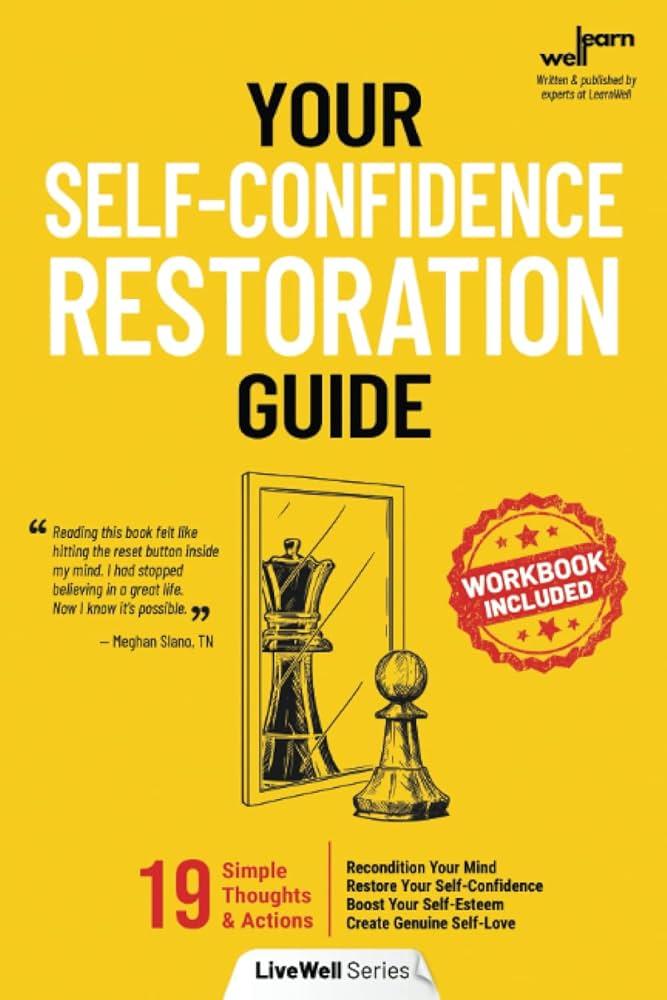In today’s fast-paced world, it’s easy to find our confidence shaken by setbacks, criticism, or the pressures of daily life. Yet, self-worth is a vital foundation for personal happiness, resilience, and success. Reclaiming confidence isn’t about pretending to be perfect or overly optimistic; it’s about recognizing your inherent value and embracing your strengths despite challenges. In this article, we’ll explore practical steps to restore your self-worth, helping you build a healthier relationship with yourself and move forward with renewed assurance. Whether you’re starting from a place of self-doubt or simply seeking a confidence boost, these insights aim to guide you toward a more grounded and positive sense of self.
Table of Contents
- Understanding the Roots of Low Self-Worth
- Practical Techniques for Building Daily Confidence
- Cultivating Supportive Relationships for Emotional Growth
- Setting Boundaries to Protect and Enhance Self-Esteem
- Closing Remarks
Understanding the Roots of Low Self-Worth
Our sense of self-worth often begins to take shape early in life, influenced heavily by childhood experiences and the messages we absorb from our environment. Negative feedback, neglect, or unrealistic expectations can quietly erode confidence over time, leaving us questioning our value. Even subtle, consistent comparisons to others or repeated exposure to criticism can implant seeds of doubt that grow into chronic low self-esteem. Recognizing these root causes is crucial because they often lie beneath the surface of our daily struggles, influencing how we perceive ourselves and the world around us.
Additionally, societal pressures and cultural norms play a significant role in shaping our self-image. The bombardment of idealized portrayals on social media and in advertising can create unrealistic standards, leading many to feel inadequate or unworthy. Internalizing these external judgments can cause a cycle of self-criticism and withdrawal. By identifying these external and internal factors, you can begin to dismantle the harmful narratives that have taken hold. Understanding the origins of low self-worth is the essential first step toward breaking free and cultivating a more compassionate and authentic self-view.
- Early childhood experiences
- Negative feedback and criticism
- Unrealistic societal expectations
- Comparisons fueled by social media
- Internalization of external judgments
Practical Techniques for Building Daily Confidence
Building confidence each day starts with intentional, small actions that gradually reinforce your belief in yourself. Begin by setting manageable goals and celebrating your progress, no matter how minor it may seem. This process not only cultivates a sense of achievement but also rewires your mindset to acknowledge your capabilities. Another effective strategy is to adopt positive self-talk and challenge any internalized negative beliefs. By consciously replacing self-doubt with affirmations like “I am capable,” or “I can handle challenges,” you establish a foundation of self-assurance that grows stronger over time.
In addition to mental exercises, engaging in daily practices that nurture your well-being can profoundly impact your confidence. Consider incorporating the following techniques:
- Mindful breathing: Taking moments throughout the day to center yourself reduces stress and heightens awareness.
- Physical movement: Regular exercise releases endorphins, which elevate mood and reinforce a positive self-image.
- Journaling your wins: Writing down even the smallest successes helps you track growth and shifts focus from setbacks.
- Stepping outside your comfort zone: Facing small fears regularly strengthens resilience and broadens your experience.
Integrating these habits creates a sustainable rhythm of self-improvement that steadily bolsters your confidence without overwhelming your daily routine.
Cultivating Supportive Relationships for Emotional Growth
Building connections that nurture your emotional well-being is essential for reclaiming your confidence. Surrounding yourself with people who offer genuine encouragement and understanding creates a safe space to express your feelings without judgment. These relationships act as the foundation for exploring your vulnerabilities and celebrating your progress, fostering resilience and self-compassion. Remember, mutual respect and empathy should be the cornerstones of such bonds.
To cultivate these supportive relationships, consider the following:
- Seek out positive influences who uplift rather than drain your energy.
- Engage in open, honest communication to strengthen trust and deepen connections.
- Practice active listening, showing that you value and understand others’ perspectives.
- Set healthy boundaries to protect your emotional space and maintain balance.
These steps not only enhance your emotional growth but also empower you to build a network that mirrors the confidence you’re reclaiming within yourself.
Setting Boundaries to Protect and Enhance Self-Esteem
Learning to define your personal limits is a powerful act of self-respect that communicates your values and priorities to those around you. Without boundaries, others may unintentionally chip away at your confidence by overstepping or taking advantage. By clearly stating what is acceptable and what isn’t, you not only protect your emotional space but also send a message to yourself that your feelings and needs matter. This clarity fosters an inner sense of security, empowering you to focus on growth rather than on managing external pressures or criticisms.
Establishing boundaries can be challenging but is essential for maintaining healthy relationships and preserving your self-worth. Consider starting with these practical steps:
- Identify your limits: Reflect on situations where you feel drained, disrespected, or undervalued.
- Communicate assertively: Use “I” statements to express your needs without blaming or apologizing excessively.
- Practice consistency: Reinforce your boundaries by maintaining them even when you face resistance.
- Prioritize self-care: Recognize that protecting your own well-being is not selfish but necessary.
Embracing these steps helps transform boundaries from walls into bridges that support mutual respect and enhance your confidence.
Closing Remarks
Reclaiming your confidence is a personal journey that requires patience, self-compassion, and consistent effort. By taking small, intentional steps to nurture your self-worth, you can gradually rebuild a positive relationship with yourself. Remember, setbacks are a natural part of growth, not a sign of failure. Embrace the process, celebrate your progress, and allow yourself the grace to evolve at your own pace. Confidence isn’t about perfection—it’s about believing in your value, no matter where you are on your path. Keep moving forward, and trust that each step brings you closer to the empowered, authentic you.

